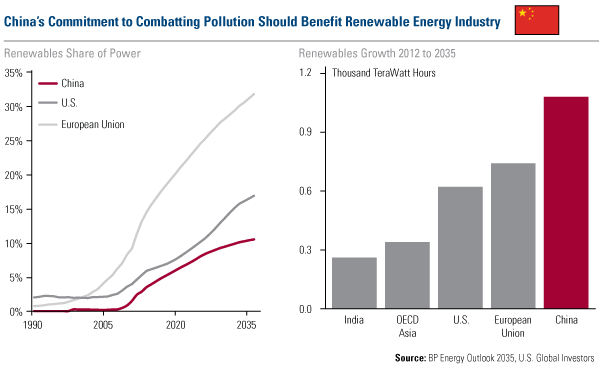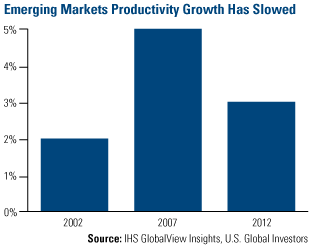Emerging Markets Radar (February 18, 2014)
Strengths
- The eurozone recovery continues to firm up as GDP data showed that the bloc's recovery strengthened in the fourth quarter. Eurozone GDP accelerated to 0.3 percent from the third quarter and topped forecasts of a 0.2 percent rise. German GDP also increased and beat expectations. The GDP figures have helped boost European stocks and provide support for emerging market exports.
- The Czech economy expanded at the fastest pace in more than six years in the fourth quarter after the central bank intervened to weaken the currency. Fourth quarter GDP rose 1.6 percent from the previous quarter, beating expectations for a .06 percent rise. Similarly, Hungary’s fourth quarter GDP rose 2.7 percent from the previous year, beating expectations and posting its best economic growth since 2007.
- Indonesia’s current account deficit improved to a better than expected 2 percent of GDP in the fourth quarter from 3.8 percent in the third quarter, thanks to a decline in imports with lower domestic demand led by interest rate hikes and weaker currency. The Indonesian central bank left interest rates unchanged amid better trade balance, stable inflation, and stabilizing currency.
Weaknesses
- Estonia’s economy unexpectedly came to a halt last quarter as transport revenue and exports weakened. Gross domestic product had zero growth from a year earlier, the first time the economy stagnated since exiting a recession in the second quarter of 2010. Economic growth in the Baltic nation, slowed to 0.7 percent last year after government spending on construction declined and decreasing trade with Russia cut into transport revenue.
- Emerging market equity funds continued to face redemptions for the sixteenth consecutive week, although compared to the previous two weeks, the pace of outflows eased. This week’s outflow of $3.05 billion is lower compared to the average $6.30 billion over the last two weeks.
- Net selling of Asian equities from foreign investors amounted to $1.7 billion over the last three weeks ended Wednesday, February 12, and Taiwan witnessed the heaviest foreign selling in absolute amounts.
Opportunities
- The sell off that triggered the worst start for emerging market stocks in four years is approaching the end as valuations begin to look attractive, according to Mark Mobius, who oversees more than $50 billion in developing-nation assets. The sell off dragged the benchmark index’s valuation to a low of 8.96 times forward earnings earlier in the month, the cheapest level since August and compared with a multiple of 14 for the MSCI World Index of developed-country equities.
- China’s decision to spend $1.6 billion this year to reward local governments who make significant progress in controlling air pollution once again epitomizes government policy priority to address environmental degradation. Indeed, according to BP Energy Outlook 2035, China is expected to surpass the European Union (EU) in terms of renewable energy volume growth. The local clean energy sector should continue to benefit from this secular transformation.
- A recent journal article described a novel way to predict excess bond returns on emerging market debt which could be used as proxy for currency-hedged returns for foreign investors. According to the article, bond and equity momentum, as measured by equity flows are two key drivers of excess returns; however, when used together with the term spread, it can robustly estimate excess bond returns. Since equity returns are expected to outperform bond excess returns on the long run, this type of analysis better illustrates opportunities in emerging markets, even during a period of weaker emerging market currencies.
Threats
- A senior attorney at the EU’s top court issued a formal legal opinion Wednesday which could clear the way for Hungarian courts to change foreign-currency mortgage loans if they find exchange-rate stipulations in the loan contracts unfair. If the Hungarian courts decide to ease the loan conditions with modifying the exchange rates, the consequences of the currency slide would weigh unequally on the private banks.
- Productivity growth in the emerging world has decelerated over the past decade even as wage inflation has remained high. According to a recent IHS Research Report, average annual productivity growth in the large emerging markets, which had risen from around 2 percent in the early 2000s to 5 percent right before the 2008 recession, has steadily deteriorated since, to around 3 percent recently. Meanwhile, wage growth continues to be two to three times higher than in the advanced economies. This points to a fundamental deterioration in competitiveness.
- Seasonal noise surrounding Chinese macroeconomic data release for January due to the timing difference of Chinese New Year from a year ago may be cited as an excuse by short term investors to take profits in outperforming stocks.















